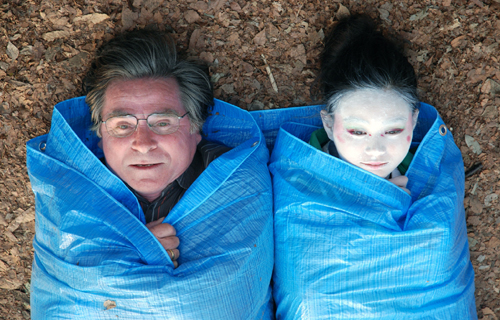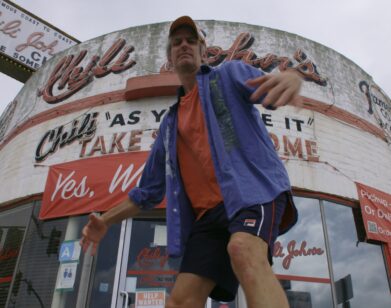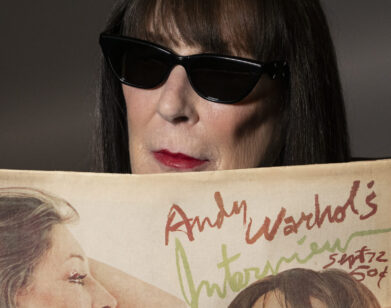Tokyo Stories

Still courtesy of Strand Releasing
Forget Paris: This season’s darling city of art house films is shaping up to be Tokyo. March sees the release of Tokyo Sonata, Kiyoshi Kurosawa’s drama about a family that falls apart after its patriarch (Teruyuki Kagawa) loses his job. Also that month: Tokyo!, a triple bill of short films set in the Japanese capitol and directed by foreigners Michel Gondry, Leos Carax, and Joon-ho Bong.
First, though, there’s Cherry Blossoms, out this Friday. In purely geographic terms, it’s not full immersion—about half the film takes place in Germany—yet Doris Dorrie’s account of a staid German man (Elmar Wepper) who makes meaning from an unlikely trip to Tokyo and Mt. Fuji makes ample use of the foreign setting. Incidentally, it’s one that Dorrie, who has been to Japan more than a dozen times and has shot three films in Tokyo, knows well.
Dorrie’s film is loosely based on Ozu’s 1953 classic Tokyo Story, but “it’s really much more about Japan and my experience in Japan,” she says. “The sense of being a total stranger and at the same time being very much at home in this foreign land—the sense of being taken good care of by the whole country… It has a lot to do with Japanese mindfulness, tact and respect.”
As she perceives it, at least. Those same qualities are critiqued in Tokyo Sonata as a mask for emotions that may explode any moment. For Sofia Coppola, they meant humorous inscrutability—a Western-oriented perception, Dorrie claims, and one she hopes to correct. “I find Lost in Translation extremely racist and condescending. Every Japanese in the film is a total idiot, and the two main characters never venture out of the realm of the tourist attractions.” Another reason international filmmakers might want to revisit Japan? “In Tokyo, nobody in the streets ever looks into the camera, and nobody ever stops and asks you questions-it’s just something you don’t do,” Dorrie said. “So it’s very easy to move around with a flexible crew and shoot guerilla-style.”






